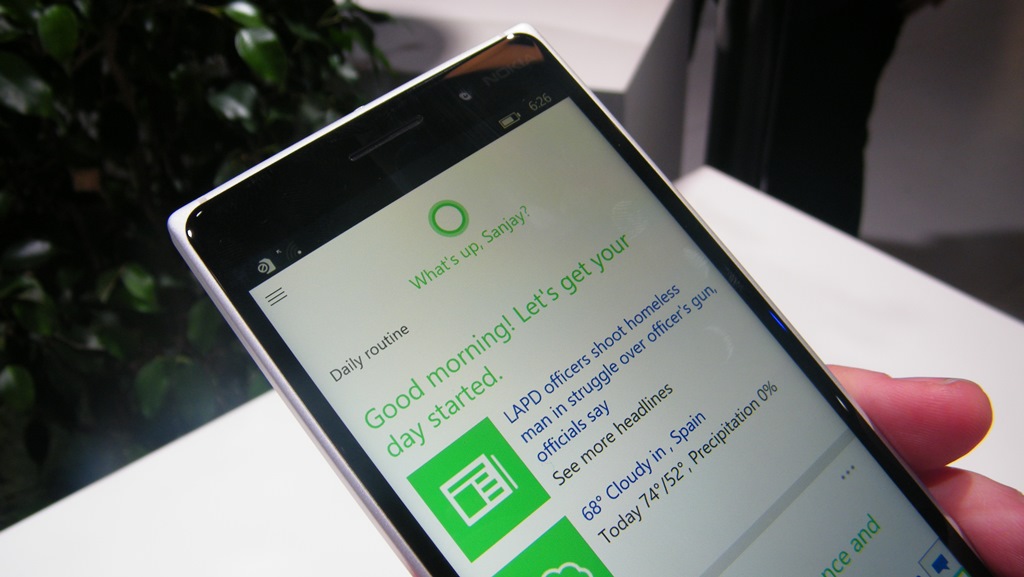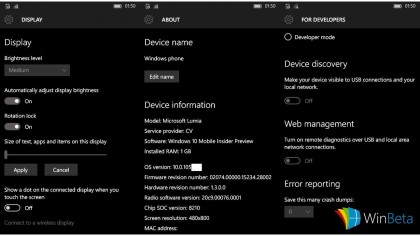Leaked Windows 10 Mobile feature hints at sharper Lumia displays
Resolution-packing Lumia 950 and Lumia 950XL

If early leaks didn't convince you, newly leaked screenshots of Microsoft's Windows 10 Mobile operating system suggest that Microsoft's latest Windows smartphones could come with larger, higher resolution displays.
The new flagships, which are known as the Lumia 950 and Lumia 950XL, are expected to make their debut alongside Microsoft's Surface Pro 4 at a media event Tuesday. These smartphones are expected to be among the first phones on the market to run Windows 10 Mobile.
The Lumia 950 is expected to come with a 5.2-inch display, while the larger 950XL is rumored to debut a 5.7-inch form factor. Both devices have been rumored to come with a WQHD (2,560 x 1,440 pixels) resolution, matching flagship Android devices like the Galaxy S6, Galaxy Note 5 and LG G4.

Being productive with a larger display
One of the features discovered in the newly uncovered Windows 10 Mobile build, which does not come with a specific build number, is the ability to adjust text size on the display.
This will be beneficial as Microsoft moves into the phablet space. Previously, on the Lumia 1520, a six-inch phablet with a 1080p HD display, content just scaled up to fill the larger screen. However, with Windows 10 Mobile, it appears that rather than scaling up, users can fit more on their screen.
For productive apps, like using Office Mobile or browsing the web, you may be able to see more of your Word document, Excel spreadsheet or Edge webpage.
Developer mode
Also new in the build is the appearance of a developer mode, which will be useful for more advanced users to gain additional functionality out of their devices and the OS.
Sign up to the TechRadar Pro newsletter to get all the top news, opinion, features and guidance your business needs to succeed!
The feature has been available on Android, and its appearance on Windows 10 Mobile shows Microsoft's willingness to do more to entice developers to create apps and content for the Windows 10 ecosystem.
It appears that Microsoft has addressed lags and performance issues with the latest build as well.
In a Twitter post, Gabe Aul, Vice President, WDG Engineering Systems team at Microsoft, told eager Insiders that "it seems pretty likely we'd have builds after the [October 6] event...but not before."
Microsoft's latest flagship is also rumored to arrive with an iris scanner to meet the needs of security-oriented business users. Biometric iris scanners would allow Microsoft to better compete with fingerprint scanners on iPhone and flagship Android devices, as Apple, Google and Microsoft are all courting enterprise adoption.
Via: WinBeta
- Read our hands-on review of Windows 10 Mobile